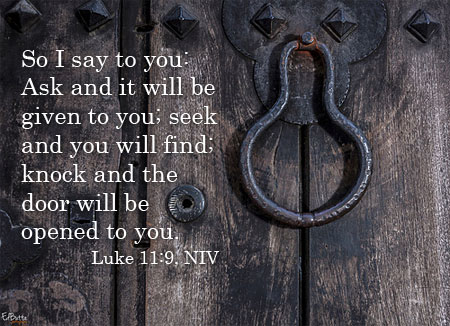In this seventh installment of our series, we hear from Agnes Brazal of the Philippines.
Role of the Moral Theologian in the Church and in the Society—A Philippine Perspective
“If you cannot make me better than I was, why are you talking to me at all?”[1] This is the radical question posed by St. Augustine, which for me captures the challenge to moral theologians to “make a difference” in the Church and society. I wish to illustrate some of the ways by which theological ethicists in the Philippines have attempted to respond to this challenge.
The Philippines has the third largest Catholic population in the world, and the local Church (that includes the hierarchy, religious, and other faith-based groups) is regarded by the public as among the top three most credible institutions in the country. In this context, the Judeo-Christian tradition remains a potentially powerful resource for moral conversion. Theological ethicists have the duty to communicate the best of the Christian moral tradition and to engage in new investigations (Gaudium et Spes §62) which can contribute toward ecclesial and social transformation.
Dionisio Miranda, SVD is among the pioneers in the country in employing vernacular concepts to make Christian ethics culturally intelligible. He initiated the development of a Filipino moral anthropology built on the Philippine concept of loob (inner self; will), re-articulating conscience as loob-makatao (humane inner self) or loobmoral and highlighting virtues in Philippine categories related to the nature of one’s loob (e.g. kagandahang-loob or gracious goodness as queen or form of all virtues). This is an important step— followed by younger theologians, albeit using a more discourse and praxial-based methodology— in decolonizing the faith and in instilling appreciation of our cultural categories and ways to become more fully human.
Christian ethicists’ participation in the task of moral transformation also includes helping purify the Church itself, which has admitted that it is “flawed” and “imperfect” (Second Plenary Council of the Philippines § 246, 142). The Synod of Bishops document Justice in the World has reminded us that “anyone who ventures to speak about justice must first be just in their eyes” (§40). In this spirit, theological ethicists like the late Nila Bermisa, MM and Aloysius Lopez Cartagenas have called attention to the issue of clergy sexual abuse. As member of the research team of the Women and Gender Commission of the Association of Major Religious Superiors in the Philippines, Bermisa documented cases of sexual abuse in the Philippine Catholic Church, created and supervised from 2003 to 2005 Talitha Cum, a healing center for the victim-survivors, and wrote a narrative and descriptive account of these in her book. Based on Bermisa’s narration, one can deduce that the results of the research which was started in 2000, had a direct influence in the release of the 2003 Protocol on Clergy Sexual Misconduct by the Catholic Bishops Conference of the Philippines. Cartagenas, in turn, focused on areas where the Protocol can be further strengthened (e.g. the need for a body to monitor its implementation and its failure to link patriarchal gender socialization patterns and clericalism to sexual violence against women). At the moment, the Philippine bishops are in the process of reviewing the guidelines which will be returned in August to the Vatican.
Contemporary theological ethicists have spoken on a variety of other urgent socio-political concerns like poverty, gender issues, genetically modified crops, democratizing the culture, migration, ecology etc. In Randy Odchigue’s theo-ethical reflections on the efforts to save the Taguibo watershed in Southern Philippines, one finds a dynamic interfacing of theological theory and praxis. As vice-president of the Father Saturnino Urios University which spearheaded the Save Taguibo Watershed Network (STWN), Odchigue was involved in the advocacy against logging and mining activities that were threatening to destroy the watershed. In an article, he described and critiqued Church groups’ “disengaged pacifism” on the one hand and “hegemonic engagement” on the other, in favor of a “dissenting particularity” exemplified in Jesus’ promotion of God’s reign for the advantage of the poor and the marginalized, as espoused by the STWN advocates. The latter had, among others, eventually helped push the Department of Environment and Natural Resources to issue a cease and desist order against illegal logging and the building of a road in the watershed; commit to close mining in the tunnel; and set up a check point manned by government, civilians, and church representatives.
A highly controversial issue which called on the expertise of theological ethicists has been the Reproductive Health bill, now a law. It mandates government to make universally accessible maternal care, methods of contraception, and sex education in schools starting from the elementary level. Moral theologians have been called on to help legislators, concerned Christians and the public in general to understand the bill in the light of the Catholic teachings. Eric Marcelo Genilo, SJ, together with two other fellow Jesuits (a sociologist and a Constitutionalist) offered a mediating role in the heated and divisive discussion of pro and anti-RH bill groups preceding the bill’s passage. Mediating roles such as this helped toward effecting revisions in the bill, in response to the points the Church hierarchy opposed. An accompanying ethical issue was the threatening of politicians endorsing the RH bill with a Church-organized campaign against them in the mid-term elections. Genilo argued that such employment of political pressure is unethical because the Church can be regarded as: 1) unnecessarily engaging in partisan politics; 2) disrespectful of the primacy of conscience of voters; and 3) reinforcing bad politics whereby legislators make decisions no longer on the basis of principles but for the sake of political survival. A revised version of the bill has been enacted in December 2012 but its implementation has been suspended this July for an indefinite period, pending resolution of petitions opposed to the law filed in the Supreme Court.
Without falling prey to pragmatism, that is, a theology directly oriented to praxis or managed directly for the benefit of praxis, theological ethics should be able to, in the longue durée, contribute something toward the transformation of the Christian community and the bigger society. In line with this, moral theologians should engage in research and writing to understand more systematically and critically ecclesial or social issues arising from people’s struggle for well-being. The DaKaTeo (Catholic Theological Society of the Philippines), composed of theologians in the various fields within the discipline including moral theologians, is a community of support as well as a “pressure” group for Filipino theologians, often saddled with heavy teaching and pastoral workloads, to continue producing creative and relevant theological research. Filipino women doing theological ethics also find encouragement and mentoring in the Ecclesia of Women in Asia, an association of Catholic women theologians, which aims to help Asian Catholic women do feminist contextual theology from the standpoint of those in the margins and from an inter-disciplinary and inter-faith perspective. In the conferences of both groups, paper writers may already receive feedback even on their abstracts to help them in focusing on a theme and in improving their methodologies. Papers which are distributed before the conference for the participants to read are subjected to an appreciative and critical evaluation and are expected to be revised in response to the recommendations. Through such means, [moral] theologians help one another to refine their arguments. The Catholic Theological Ethics in the World Church Asian regional committee is also planning to strengthen its network of theological ethicists in the 2015 conference in Bangalore in order that we can provide greater support to one another in our roles in the Church, academe, and society.
However, the ultimate validation of the justifiability of our theological-ethical productions, as can be seen in some of the examples mentioned above, occurs in the Christian communities—in dialogue with the bigger society— as these are subjected to their discernment, intersubjective criticism and questioning: “If you cannot make me better than I was, why are you talking to me at all?”
————————————
Agnes M. Brazal is professor of moral and systematic theology, Director of the Office for Research and Publications and Graduate Program Coordinator (PhD/MA) at the St. Vincent School of Theology-Adamson University. She has been a planning committee member of the CTEWC since 2007. She has a forthcoming co-authored book on Intercultural Church: Bridge of Solidarity in the Migration Context (Louisville, KY: Sopher Press).
[1] Cited by Juan Luis Segundo, Jr. The Liberation of Dogma (NY: Orbis Books, 1992), 242.






Trackbacks/Pingbacks